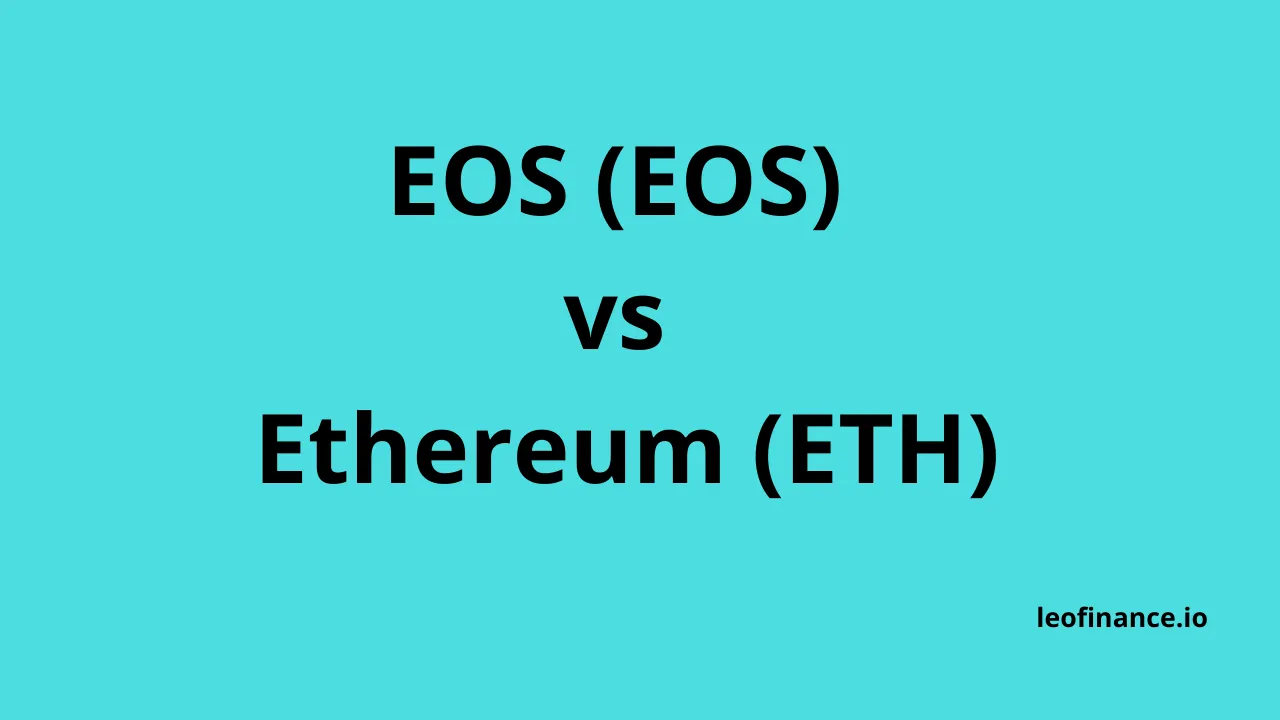This section is a part of EOS Crypto Guide. In this section, we will compare two blockchains - EOS (EOS) vs Ethereum (ETH).

Introduction
This guide is designed to show you an unbiased feature set comparison of blockchains in the discussion. The below table shows you the comparison points between the two blockchains.
| EOS (EOS) | Ethereum (ETH) |
| EOS had the ICO for the coin in 2017, and the blockchain was launched in June 2018. | Ethereum whitepaper was launched in 2013, and launched the mainent in 2015. |
| The circulating supply of EOS is 972,456,154 EOS coins and total supply is not available. | Ethereum has a circulating supply of 117,046,619 coins and total coins $365,186,415,050 coins in supply. |
| EOS makes use of the delegated proof of stake consensus algorithm in its network. | Ethereum, on the other hand, makes use of the proof of work consensus algorithm and is switching to a proof of stake algorithm soon. |
| EOS has a transaction per second rate of 4000 TPS documented so far. | Ethereum has a transaction per second rate of 9 to 45 TPS depending on the network load. |
| EOS has a block confirmation time of 1.5 sec. | Ethereum has a block confirmation time of 20 sec. |
| EOS has block validating nodes around 21. | Ethereum has block validating nodes around 6,700. |
| EOS has lower transaction costs for its smart contracts. | Ethereum has higher transaction costs, and it's rising with network load. |
| EOS is faster, and despite lesser nodes, it has more capacity to scale and handle the network load. | Ethereum, on the other hand, has demonstrated its inability to scale and also unable to handle network load. |
| EOS appears to be more centralized due to venture investment into the blockchain. | Ethereum has both private and foundational control over the blockchain, and it leans more towards decentralized and governance-based blockchain. |
| EOS was designed with the need of assigning and voting for network validators. | Ethereum was designed to create dApps and smart contracts on the blockchain. |
EOS OR Ethereum (ETH) - Which one to choose?
Ethereum's layer 2 solutions and the dApps and the NFT and crypto gaming ecosystem have been increasing every day. This market strength is something almost none of the market's blockchain has been able to match so far in terms of adoption numbers. EOS has a long way to go to compete on the same grounds.
If you're a developer who intends to use the EOS for a specific set of the use case, then it'd be reasonable to use EOS. Otherwise, developers can overcome many of Ethereum's shortcomings by adopting the tokens on layer-2 solution.
You may want to also check out:
Conclusion
EOS is a blockchain that is much more scalable and has many other benefits that are attractive to developers and investors. However, Ethereum has been heavily used for dApps, smart contracts, NFTs, and other blockchain solutions. Another point that goes in favor of Ethereum is its decentralized approach more than EOS blockchain.
Depending on your role as an investor or developer, you'd have to choose the suitable blockchain for your use case.